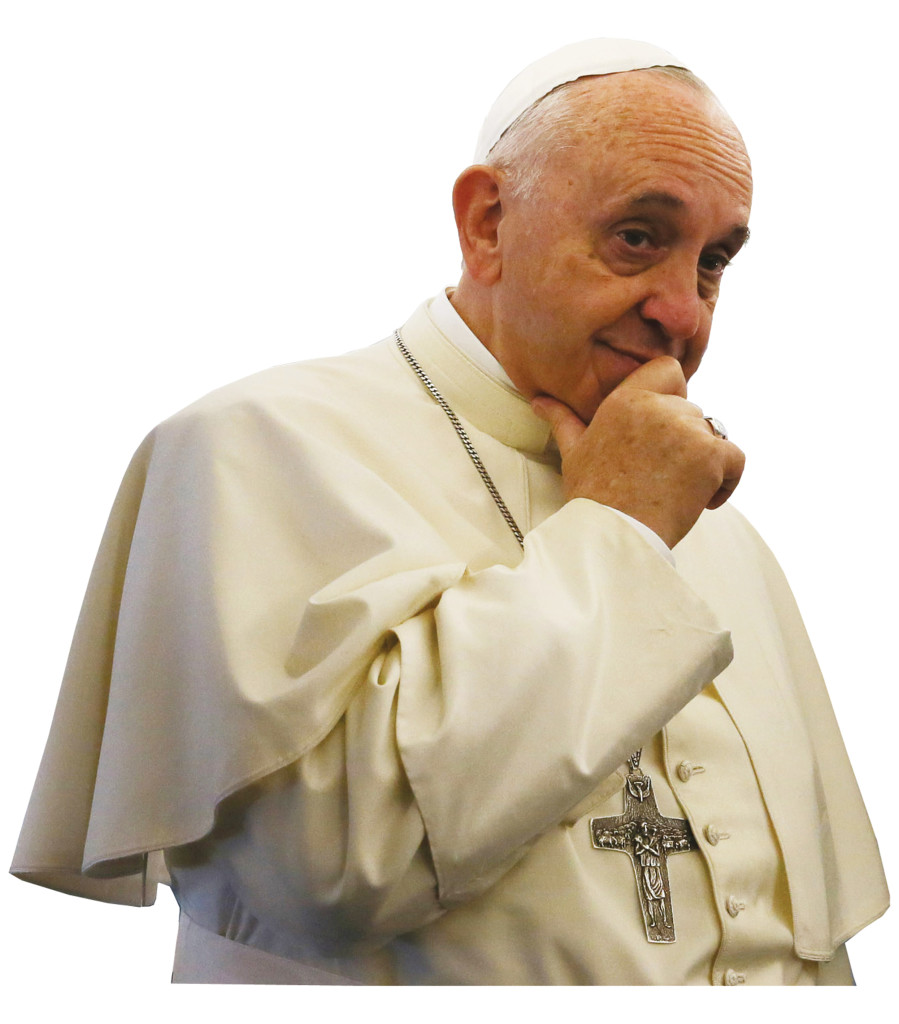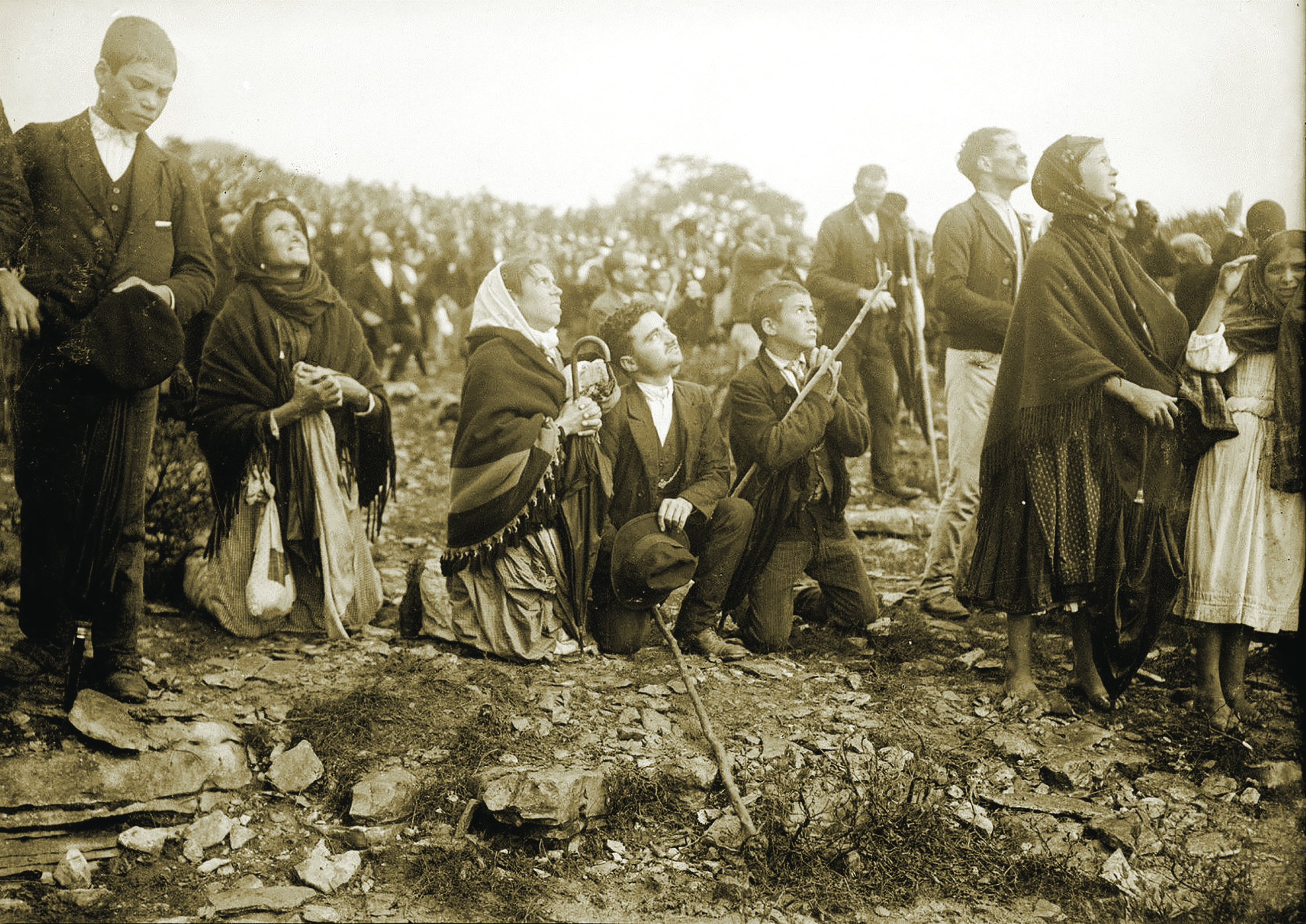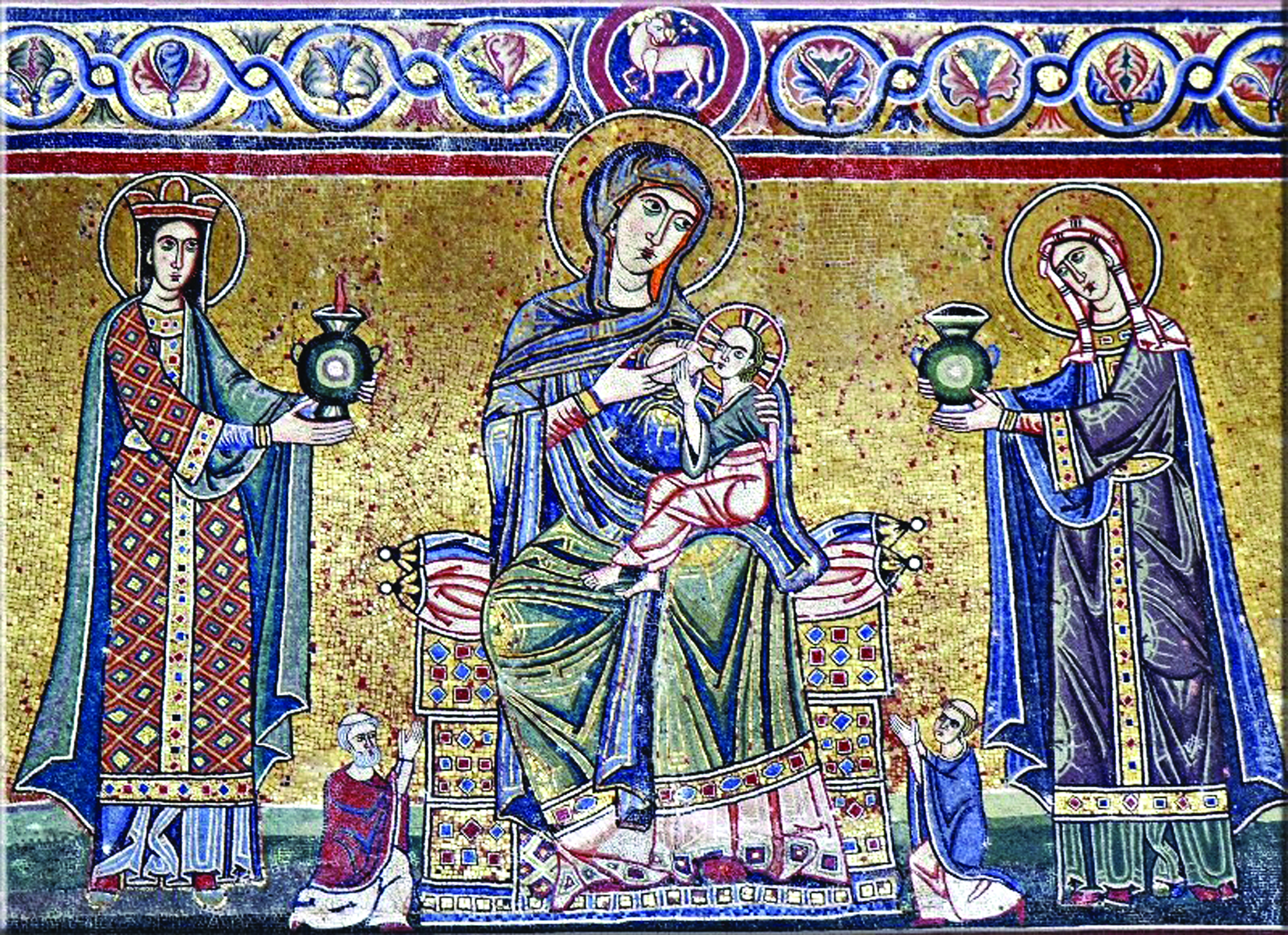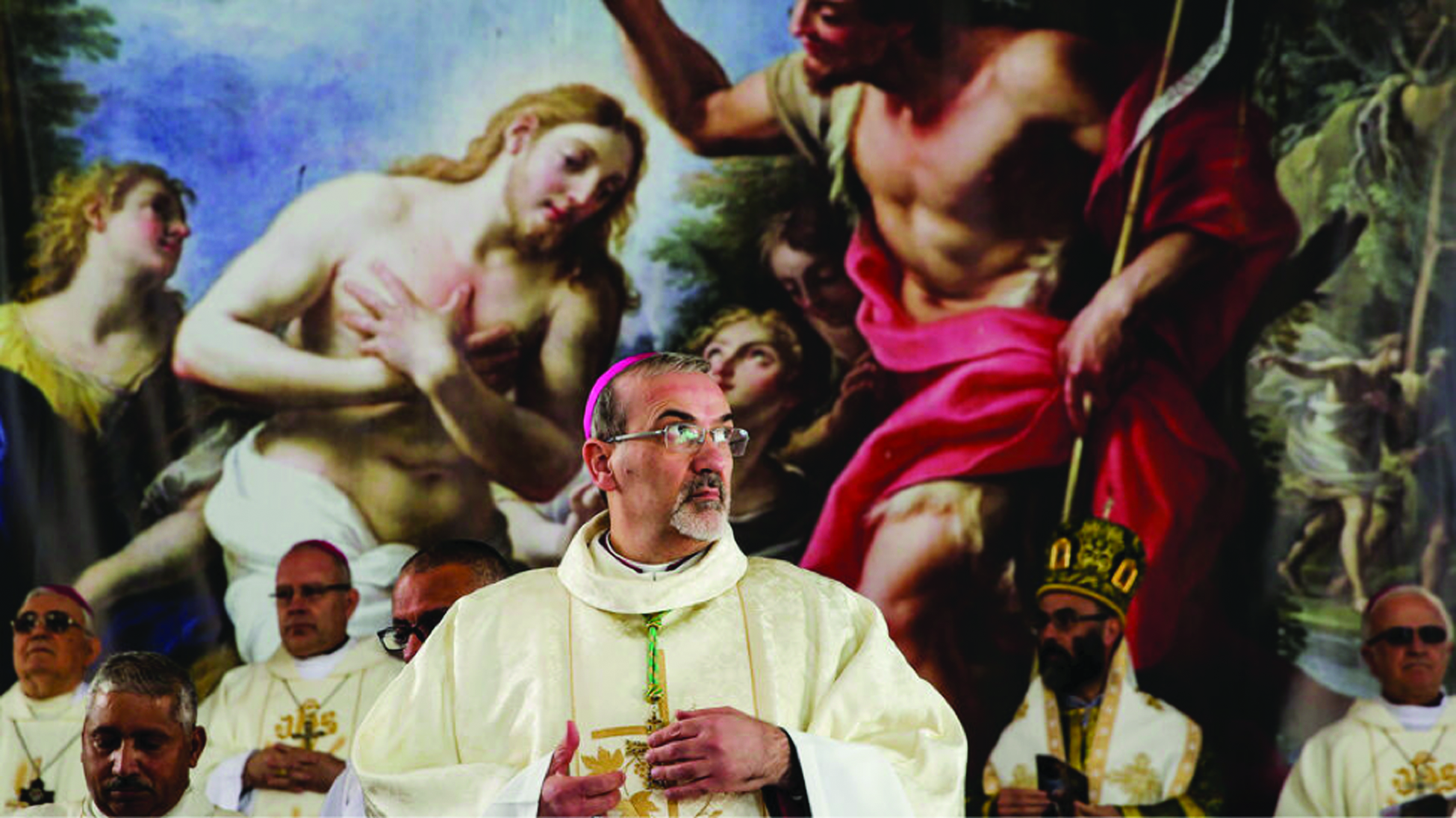What is he doing, and what will he do next? As the Synod opens, the world watches…

Pope Francis is neither “left” nor “right”, but centered on the experience of God’s mercy and the forgiveness of human sins. This is what he is attempting to teach by his words and deeds.
People around the world are watching what Pope Francis is saying and doing, and trying to understand what it means.
A friend called me recently from Switzerland: “What do you make of this alleged ‘irritation’ of the Pope over the new book defending traditional Catholic teaching on marriage?” he asked. “And his allegedly asking Cardinal Mueller not to promote the book? What’s going on?”
Another friend emailed from New York. He had just spoken with an Orthodox Jewish rabbi who is well-known in the pro-life movement. “I have been talking to a mutual friend — Rabbi Yehuda Levin, who spoke at the March for Life for several decades. He is a strong supporter of the Catholic Church’s stand against abortion, and for traditional man-woman marriage, etc. He is a spokesman for the Rabbinical Alliance of more than 800 Orthodox Rabbis. He feels that if the Church waffles or retreats on abortion or homosexuality or marriage at the upcoming Synod, this will have an adverse effect on Orthodox Judaism and other strong family religions. He is very concerned about the upcoming Synod.”
Another friend wrote, in response to a newsflash I sent out: “Excellent rundown on the issue and cardinals involved. Prelates encouraging or advocating change are gradually ruining the authentic true Catholic Faith. The Roman Catholic Church is not supposed to be a ‘feel good’ Church, waxing and waning to current social issues. It is tragic that the once prestigious Roman Catholic Church is now dysfunctional, divided, depleted, contentious and infiltrated.”
And another reader wrote: “Many thanks — was hoping for more clarification on this issue! Will watch this space. Any comment on Cardinal Burke’s new job?” (Note: There have been unconfirmed reports that Pope Francis has decided to move the American Cardinal Raymond Burke from his post in the Roman Curia, as head of the Apostolic Signatura, to a post outside the Curia, as head of the Sovereign Order of the Knights of Malta.)
So many Catholics, and some Orthodox Jewish rabbis, in many countries around the world, are watching Pope Francis and wondering what he is doing and what he will do next…
Understanding Francis
Pope Francis, I think, is attempting to make a slight adjustment in the Church’s pastoral focus.
Not to change Church doctrine, but to review and reform how the Church deals with, and cares for, fallen human beings.
This attempt is rooted in both personal experience and in theological conviction.
Francis is persuaded there is a need to reach out to suffering, wounded, disoriented sinners in part because of a personal experience.
He had a personal, life-changing experience, a mystical experience, of God’s forgiveness of his sin.
It came after he went to confession at the age of 16 in a church in Buenos Aires.
He has even told us the date: on September 21, 1953 — the Feast of St. Matthew (for this reason, Francis is fascinated by the painting of Caravaggio called The Calling of St. Matthew in the Church of St. Louis of the French near Piazza Navona in Rome; in past years, he often would go there when visiting Rome).
This is how the Vatican put it in a biographical sketch published at the time of the Pope’s election last year: “Following a confession, he felt his heart touched and sensed the descent of the mercy of God, who with a look of tender love, called him to the religious life, following the example of St. Ignatius of Loyola.”
In these few, spare words, we are told of an experience which transformed the life of young Jorge Mario Bergoglio.
He felt his heart “touched” and he “sensed” the “descent of the mercy of God.”
He felt, “in a very special way,” the “loving presence of God in his life.”
This experience is part of the reason Francis wishes to deal with human frailty and sin, not through a restatement of why the sinner is in sin, or in a recitation of the Church’s judgment that the sinner’s choices and actions are sinful, but with mercy, with forgiveness, and so, with an opening out to new life.
There are also theological convictions at the base of Francis’ vision for the pastoral care of Christians — and for all human beings.
Francis is persuaded that the Church is a Mother, that the Church nourishes and protects and supports her children.
He is persuaded that the Lord Jesus, Founder of the Church, still present in the Church, in the Eucharist, in His Word, in his ministers and disciples, and in the love of the members of the Christian community for one another, wishes — as He did when He walked on this earth — to pardon sinners, to forgive them and heal them, not to condemn them and cast them out.
Francis believes in the “personal encounter” — with persons, with a “Mother”… a “Father”… a “Brother” who walks beside us, with us. And he regards a certain type of “moralism,” which can seem to set laws and precepts and anathemas above such a “walking with,” as something to be avoided, a possible trap for believers.
He doesn’t want to “change the rules” about what is good and evil. Rather, he wishes to forgive those who transgress those rules, and repent, and seek forgiveness.
And he senses that he must privilege this attitude, and this action, or he may lose many souls, who will, sadly, perhaps in despair, turn aside from the way of the Christian faith, unless the Church reaches out to them with arms to embrace and forgive.
And precisely in mid-September, Francis spoke about this very personal vision of human life, human morality, and human sin, in his morning homily at Mass in the chapel at his residence, the Domus Santa Marta.
In his morning homily, Pope Francis said that it is precisely in one’s sins where one meets Jesus.
The Pope said that in recognizing our sins, we are able to experience Christ’s loving forgiveness.
He said: “This is why the ability to acknowledge our own sins, to acknowledge our misery, to acknowledge what we are and what we are capable of doing or have done, is the very door that opens us to the Lord’s caress, His forgiveness, to His Word, ‘Go in peace, your faith has saved you!’”
The Pope concluded his homily saying that those who feel themselves to be sinners open their hearts in confession and experience the mercy of God.
Vatican Radio provided these further excerpts:
“He (Christ) only says the word of salvation — ‘Your faith has saved you’ — to the woman, who is a sinner.
“And he says it because she was able to weep for her sins, to confess her sins, to say ‘I am a sinner,’ and admit it to herself.
“He doesn’t say the same to those people who were not bad people: they simply did not believe themselves to be sinners.
“Other people were sinners: the tax collectors, prostitutes… These were the sinners. Jesus says this word — ‘You are saved, you are safe’ — only to those who open their hearts and acknowledge that they are sinners.
“Salvation only enters our hearts when we open them to the truth of our sins.”
“This is why the ability to acknowledge our own sins, to acknowledge our misery, to acknowledge what we are and what we are capable of doing or have done is the very door that opens us to the Lord’s caress, to His forgiveness, to His Word ‘Go in peace, your faith has saved you!’, because you were brave, you were brave enough to open your heart to the only One who can save you.”
One can see clearly in these words the influence of the Pope’s personal experience of September 21, 1953.
That experience continues to shape his understanding of how he should deal, as Pope, with the issue of moral evil and sin, and with the reality of God’s loving mercy which can forgive such sin.






Facebook Comments